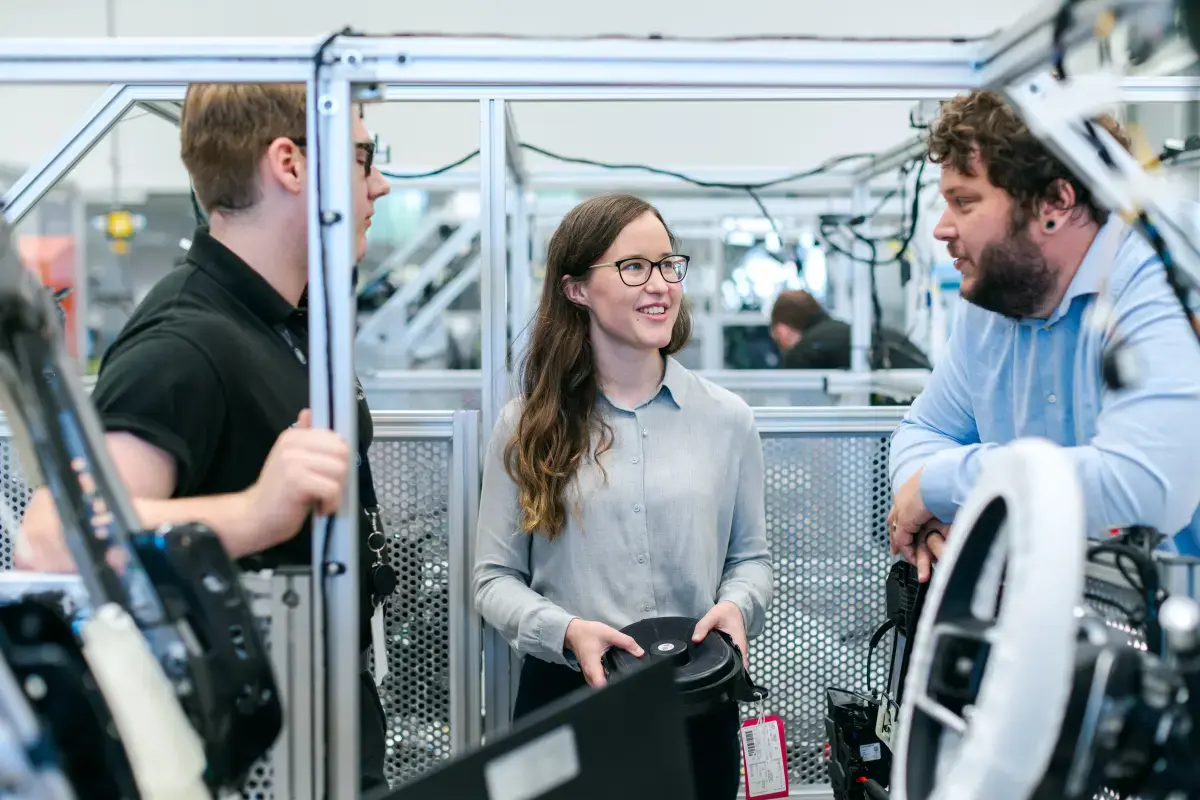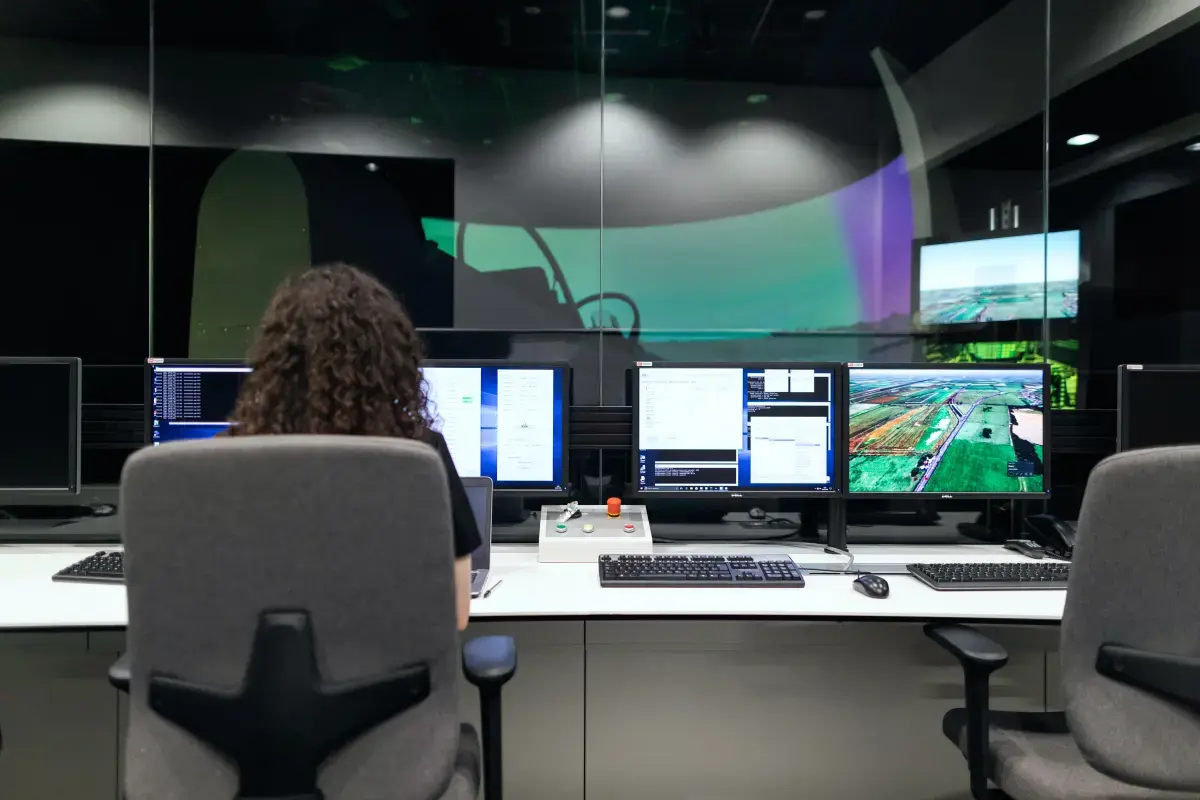
Test Engineer Job Description
What is a Test Engineer Professional?
A test engineer is someone who designed and oversees the execution of tests used to ensure the quality of software products. A typical job duties for a test engineer includes creating a testing plan, designing test cases, overseeing the testing process and analyzing results. To be successful in this role, one need to have strong analytical and technical skills. When software development projects first start, there are usually no tests at all. The project team writes code and checks that it behaves as they expect on their own computers. This might work for small projects with a few people, but soon enough everyone will encounter problems. Some will find that their code works perfectly on their machine but breaks when ran on other machines. Other times, different parts of the codebase interact in unexpected ways and break the system altogether. At this point, it becomes clear that some sort of formalized testing process is necessary in order to ensure product quality.

What does a Test Engineer Expert do?
This is where the role of the test engineer comes in. A test engineer is responsible for ensuring that software products meet their requirements before release. They do this by creating both static (e.g., reviews) and dynamic (e..g., executing automated tests) evaluations of the software under development. Creating an effective testing strategy requires a deep understanding of both the product being developed and its intended usage scenarios. Test engineers must also be aware of the state-of-the-art in testing techniques in order to select an appropriate set of methods for each project they work on

What are the Skills of a Test Engineer?
A test engineer needs a variety of skills and experience to be successful. Here are some of the most important: Thorough understanding of the software development process: A test engineer must have a strong understanding of the software development process in order to effectively plan, create, and execute tests. This includes knowledge of various methodologies (e.g. Agile, Waterfall) and tools (e.g. JIRA, Confluence). Strong analytical and problem-solving skills: A key aspect of testing is being able to analyse problems and identify potential causes. Test engineers need to be able to think logically and critically to identify issues and craft effective solutions. Excellent communication skills: Effective communication is essential for any role within a team environment, but it is particularly important for test engineers who need to liaise with developers, product managers, and other stakeholders on a regular basis.Clear written and verbal communication skills are essential in order to convey information accurately and efficiently.

What makes an Expert Test Engineer?
Experience with automation tools: Automated testing can save huge amounts of time and effort compared to manual testing, so it’s an incredibly valuable skill for any test engineer to have acquire specialist knowledge in at least one popular automated testing tool (e .g Selenium WebDriver). Familiarity with performance testing tools : In addition To automated functional tests , many employers will also want their test engineersTo have some experience with performance -testing tools such as Apache JMeter or Load runner As part loadrunner mainly used protocol we can divide into two types they are web(http/html)(click path analysis applications ((RTE),(CITRIX),(ERP)). Web services /Databases

What level of Experience & Qualifications are required to be a Test Engineer?
Industry experience: Test engineers should have significant industry-specific experience in their chosen field, such as software engineering or electronics engineering. This includes developing test plans, creating and executing tests, debugging systems, and troubleshooting issues with products or services. 2. Training: Depending on the type of job a test engineer is looking for it could be necessary to undertake formal training courses related to testing methods and techniques specific to that particular industry sector - for example Quality Assurance certification from an accredited body such as ASTM International (American Society for Testing & Materials) or ASQC (American Society For Quality Control). Additionally knowledge of relevant programming languages may also be required depending on the requirements of the role - Python being one particularly popular language used by many testers due to its ease of use and extensibility across different platforms. 3. Qualifications: It can vary between employers but generally having at least a bachelors degree in computer science/engineering would be highly beneficial when seeking out jobs within this profession since most roles require technical skills relating specifically to computing hardware/software development lifecycles; understanding system architectures; problem-solving abilities etc... Professional certifications like ISTQB® Foundation Level qualification are also advantageous here as they provide evidence that applicants possess essential qualifications proving competence in software testing topics essential for successful performance on any project team environment where safety critical systems are concerned! 4. Education: In addition to qualifications mentioned above some employers might expect prospective candidates who apply for them know how about other areas outside purely software testing too; mathematics/statistics knowledge being useful not only during tests but also interpreting results afterwards which requires numerical analysis capabilities plus good communication skills so teams understand why certain decisions were taken based upon available data collected during those measurements! Other important aspects include finding potential bugs before launch dates through thorough code reviews conducted regularly alongside continuous integration processes ensure higher quality standards throughout product life cycle stages whilst staying up-to-date with latest technologies applicable given context – all these points reinforce need become well educated both academically professionally order adequately fulfil challenges posed by ever changing market place conditions today’s competitive landscape

What is the Salary of a Test Engineer?
The salary expectations of a Test Engineer can vary greatly depending on their experience and the job market in their particular region. For junior test engineers, salaries typically start at around $50,000 to $60,000 per year. This is for those who have little or no professional testing experience but are eager to learn and develop new skills quickly. As they gain more knowledge and become comfortable with a variety of tools and techniques used in software development, they will be able to command higher salaries as senior-level testers. When someone reaches the mid-level range (about two years’ worth of experience), their salary may increase significantly from what it was when starting out— usually up into the high six figures ($100K+). At this point, these testers would likely possess both technical knowhow along with soft skills such as communication abilities that help them collaborate effectively within an organizations engineering team. They could also take advantage of certifications like ISTQB Certification which adds credibility to one’s profile by demonstrating proficiency with specific areas related to test engineering processes/practices while providing recognition amongst peers & employers alike. For senior level Test Engineers - having 5+years worth of solid work history under his belt - he or she should expect salaries ranging anywhere between $120K-$150K annually depending upon location & industry demand for QA professionals; some even make upwards near 200k+. An individual at this stage must demonstrate advanced problem solving capabilities using various methods related not only to software quality assurance but product design too; e..g., analysis/prioritizing user requirements against system architecture constraints etc... In addition possessing strong collaboration experiences involving cross functional teams including business analysts , developers , UX designers among others ; all while continually championing best practices throughout each phase SDLC process .

What are the Working Conditions for a Test Engineer?
General working conditions for a Test Engineer vary depending on the industry, but typically involve testing and troubleshooting software or hardware products to make sure they meet customer requirements. This may include designing test plans, conducting tests using various tools and techniques, analyzing results, documenting issues found in reports and/or tracking them in bug databases. It also entails preparing user manuals or other related documents that assist customers with product usage. Test Engineers must be able to communicate effectively with both technical personnel as well as non-technical people such as clients. They should have good problem-solving skills since many of their tasks require creative solutions to complex problems within short periods of time. Additionally, they must possess strong interpersonal skills so that they can collaborate efficiently across different departments during the course of development projects from initiation through delivery stages. In addition to these core competencies, most Test Engineers need an understanding of appropriate technologies used by their organization including programming languages like Java or C++; operating systems such as Windows Server or Linux; databases like Oracle SQL; web technologies like HTML5; software design principles (eg: object oriented programming); version control systems (eg: SVN) etc., which help them write better quality code faster than competitors. Since this is a highly competitive field it is important for any aspiring engineer to stay up-to date on recent advancements in technology while keeping abreast with trends in the market too!

What are the roles and responsibilities of a Test Engineer?
Creating test plans and strategies
Defining testing objectives
Identifying testable requirements
designing and developing test cases
Executing tests and analysing results
Reporting defects and tracking them to closure
Generating progress reports
Configuring testing environments
Managing the testing process
driving process improvements through continual assessment of the effectiveness of the testing process
Automating tests
selecting appropriate tools
Training new team members
Mentoring junior testers
liaising with other departments
setting up meetings
writing meeting minutes
updating documents
preparing presentations
taking responsibility for assigned deliverables

Where can I find Test Engineer jobs?
- Create a profile on gigexchange and promote your Test Engineer skills to advertise you are Open to New Work Opportunities
- Ensure your Resume (or CV), or online work profile is up to date and represents your skills and experience. Ensure your reputation reflects your ability & attitude.
- Apply for Test Engineer Jobs advertised on gigexchange.
- Practise Test Engineer interview techniques to ensure you represent your personality and ability succinctly and confidently.
- Accept the job offer if the salary meets your expectations and the employer mission and purpose reflects your core values.
Jobs
What are the best job boards for QA Tester Engineer jobs?

How can I hire Test Engineer staff online for my business?
The best job board for recruiting Test Engineer experts is gigexchange.com. Advertise full-time, part-time or contract jobs to find, hire & recruit trusted, experienced and talented Test Engineer candidates near you.

Are Test Engineer roles in demand in 2026?
Test Engineer experts are still in high demand in 2026. If you are an experienced Test Engineer or looking to train and become one. The job market is looking strong for Test Engineer jobs near me.